belling the cat
description: a fable about the impracticality of a plan that requires great risk
14 results
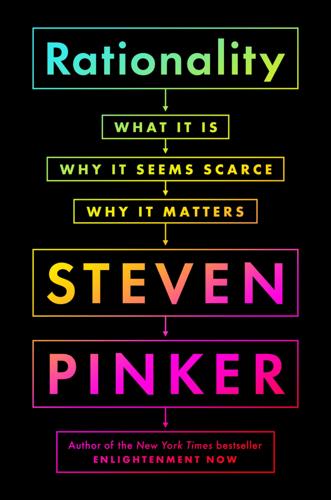
Rationality: What It Is, Why It Seems Scarce, Why It Matters
by
Steven Pinker
Published 14 Oct 2021
The philosophers Liam Clegg and Daniel Dennett have argued that human behavior is inherently unpredictable not just because of random neural noise in the brain but as an adaptation that makes it harder for our rivals to outguess us.4 A Non-Zero-Sum Game: The Volunteer’s Dilemma Rational actors can end up in outguessing standoffs not just in games that pit them in zero-sum competition but in ones that partly align them with common interests. An example is the Volunteer’s Dilemma, which may be illustrated by the medieval story Belling the Cat. A mouse proposes to his housemates that one of them put a bell around the neck of the cat while she sleeps so they will be alerted to her approach. The problem, of course, is who will bell the cat and incur the risk of awakening her and getting eaten. Parallel dilemmas for humans include which passenger will overcome an aircraft hijacker, which bystander will rescue a person in distress, and which office worker will refill the coffeepot in a communal kitchen.5 Everyone wants someone to help but prefers that it not be them.
…
(Technically it should be a hypercube with as many dimensions as there are players, but I’ve collapsed everyone but the self into a single layer.) Once again there is no dominant strategy that makes the choice easy. If one mouse knew the others would shirk, then he should help, and vice versa. But if each mouse decided whether to bell the cat with a certain probability (one that equated the other mice’s expected payoffs of belling and shirking), then the mice would fall into an outguessing standoff, each being willing to bell while hoping another mouse goes first. Unlike Scissors-Paper-Rock, the Volunteer’s Dilemma is not zero-sum: some outcomes are better for everyone than others.
…
., 264 base rates change in, 167 conditional probabilities and, 134, 138–39, 141 conjunction probabilities and, 130 forbidden, 62, 163–66 neglect of, 154–57, 349–50nn6,27 as priors in Bayesian reasoning, 167–69 random sampling, 168 as reference class, 167 relevance of, 167–68 Baumeister, Roy, 124 Bayesian reasoning base-rate neglect, 154–57, 349–50nn6,27 base-rates, forbidden, 62, 163–66 causal Bayesian networks, 260–63, 261, 263 changes in base rates, 167 credence in a hypothesis, 151 definition, 149–50, 151 equation for, 151–53 “extraordinary claims require extraordinary evidence,” 159, 161 forecasting and, 162–63 medicine and, 150–51, 152, 153–54, 167, 169–70, 321 and miracles, argument against, 158–59 morality of, 166–69 myside bias and, 297 numerical calculation of, 154 odds, 159 political commentary and, 162–63 posterior probability, 151, 153 random sampling of examples, 168 reference class, 167–68 reframing of single-event probabilities into frequencies, 168–70, 349–50n27 replicability crisis and, 159–61 San people and, 4, 166 Signal Detection Theory and, 202, 205, 213, 214, 351n6 subjectivist probability and, 115, 151 updating, 157–58 visualization of, 170–71 —“likelihood” term in equation, 152–54 bell curves as plot of, 205, 205, 351 definition, 152, 351n6, 352n6, 352n21 statistical significance as, 224–25, 352n21 —“marginal” term in equation, 153–54 —“prior” term in equation, 152–53 base rates used as, problems with, 167–69 low priors, and decreased credence, 157–63 low priors, and signal detection, 213, 214 myside bias and, 297 Bayes, Reverend Thomas, 151, 158 Beccaria, Cesare, 332–33 begging the question, 89 beliefs distal vs. testable, 298–99 factually unsupported, 300, 301–3, 304 imposed by force, 43–44, 245–46, 290 justified true, 36–37, 344n1 realist vs. mythological, 298–303 reflective vs. intuitive, 298–99 bell curve, 204–5 Central Limit Theorem and, 205, 351n5 fat-tailed, 204–5 regression to the mean and, 253 signal noise detection and, 206–11, 219 Belling the Cat, 231, 232 Bem, Daryl, 159–60 Bentham, Jeremy, 333–35 The Better Angels of Our Nature (Pinker), 183–84 Bezos, Jeff, 251 bias bias, 291 biased assimilation, 290–91 biased evaluation, 291, 294 Biden, Joe, 6, 130 Black Lives Matter, 26, 124–25 Blackstone, William, 217–18 Bodin, Jean, 335 bounded rationality, 184–88 Boy or Girl paradox, 137 brain, vs. deep learning networks, 107–9 Breyer, Stephen, 191 broken-leg problem, 279–80 Bruine de Bruin, Wändi, 323–24 burden of proof fallacy, 89 Bush, George W., 11, 218 Butler, Judith, 90 butterfly effect, 114 Calvin, John, 330–31 Carlin, George, 283, 299 Carroll, Lewis, 38, 75, 96, 225 Carroll, Sean, 160 Castellio, Sebastian, 330–31 Categorical Imperative (Kant), 69 causation all-or-none fallacy, 269 conditions and, 259, 260 confounding (epiphenomena), 246, 257, 260, 263, 265 confounding, ruling out, 267–68, 270–71 counterfactuals, 64, 257, 259, 264 definition, 256–57 fundamental problem of, 258 mechanisms, 258–59 overdetermination and, 259, 260 paradoxes of, 259–61, 260 preemption and, 259, 260 probabilistic, 259–60 reverse causation, 246, 263, 267, 269–70 San people and awareness of, 3, 4–5 temporal stability, 258 unit homogeneity, 258 See also randomized controlled trial —causal networks overview, 260 Bayesian networks, 260–63, 261, 263 causal chain, 261–62, 261 causal collider fallacy, 261, 262–63 causal fork, 261, 262 endogeneity, 263 Matthew Effect, 263–64, 354n21 multicollinearity, 263 unpredictability of human behavior and, 280–81 —multiple causes overview, 272–73 interacting causes, 273–76, 273–74 interaction, 273, 275, 277–78 main effect, 273, 274, 275, 278 nature and nurture, 273, 275–77, 276 regression equations and, 278 talent and practice, 272–73, 277–78, 278 Chagnon, Napoleon, 307 chaos, 114 Chapman, Loren and Jean, 251 cheater detection, 15–16 chemtrails, 299 chess, 277–78, 278 Chicken game, 59–61, 235–36, 237, 344n29 children adoption of, 63 heights of, 252–54 IQs of, 252–53 low birth weights, 262–63 probability of boy vs. girl at birth, 128–29, 132–33, 136–38 ultimate vs. proximate goals and, 46–47 China, 24 choice architecture, 56 Chomsky, Noam, 71, 90 CIA, 91 Circe, 53, 55 circular explanations, 89 Clark, Sally, 129–30 Clegg, Liam, 231 climate change availability bias and perception of energy sources, 121–22, 347n22 avoidance of sectarian symbolism, 312 discounting the future and, 51–52 game theory and, 227–28, 242–44 Public Goods games and, 242–43, 244 —denial of argument from authority and, 90, 91 credibility of universities and, 314 openness to evidence vs., 311 politicization of, 295, 310, 312 Trump and, 284 clinical vs. actuarial judgment, 278–80 Clinton, Bill, 25, 101 Clinton, Hillary, 82, 117, 285, 299, 306 close-mindedness.

Antisemitism: Here and Now
by
Deborah E. Lipstadt
Published 29 Jan 2019
He quickly received a response—“Hello (((Weisman)))”—from someone who utilized the screen name @CyberTrump. Sensing that the parentheses had some connection to his Jewish identity, Weisman asked for an explanation and received the following response: “What, ho, the vaunted Ashkenazi intelligence, hahaha! It’s a dog whistle, fool. Belling the cat for my fellow goyim.” (The term “belling the cat” comes from a medieval fable in which a group of mice conspires to hang a bell around a cat so that they would have fair warning when she came close to them.) Weisman observed that the belling had its intended impact. “The horde was unleashed,” he wrote. Just like Mandel, he received an avalanche of antisemitic comments and accusations.

The Blank Slate: The Modern Denial of Human Nature
by
Steven Pinker
Published 1 Jan 2002
Experiments have confirmed the prediction that people are most inclined to help a stranger when they can do so at low cost, when the stranger is in need, and when the stranger is in a position to reciprocate.46 They like people who grant them favors, grant favors to those they like, feel guilty when they have withheld a possible favor, and punish those who withhold favors from them.47 An ethos of reciprocity can pilot not just one-on-one exchanges but contributions to the public good, such as hunting animals that are too large for the hunter to eat himself, building a lighthouse that keeps everyone’s ships off the rocks, or banding together to invade neighbors or to repel their invasions. The inherent problem with public goods is captured in Aesop’s fable “Who Will Bell the Cat?” The mice in a household agree they would be better off if the cat had a bell around its neck to warn them of its approach, but no mouse will risk life and limb to attach the bell. A willingness to bell the cat—that is, to contribute to the public good—can nonetheless evolve, if it is accompanied by a willingness to reward those who shoulder the burden or to punish the cheaters who shirk it.48 The tragedy of reciprocal altruism is that sacrifices on behalf of nonrelatives cannot survive without a web of disagreeable emotions like anxiety, mistrust, guilt, shame, and anger.
…
Wald, George Walker, Rebecca Wallace, Alfred Russel War Against Boys, The (Sommers) Ward, Elizabeth warfare Warhol, Andy Warren, Earl Watson, John B. Wealth of Nations, The (Smith) Webb, Beatrice Webb, Sidney Weber, Max Weizenbaum, Joseph welfare Wells, H. G. Wertheim, Margaret West, John West Side Story White, Leslie Whitney Museum Who, The Whole Language Whorf, Benjamin Who Stole Feminism (Sommers) “Who Will Bell the Cat?” (Aesop) Wiesel, Torsten Wilkinson, Milton J. Wilkinson, Richard Williams, George Wilson, David Sloan Wilson, E. O. Wilson, Margo Wilson, Woodrow “Wisdom of Repugnance, The” (Kass) Witelson, Sandra Wittgenstein, Ludwig Wöhler, Friedrich Wolfe, Tom women: biblical view of interests of Taliban and U.S.
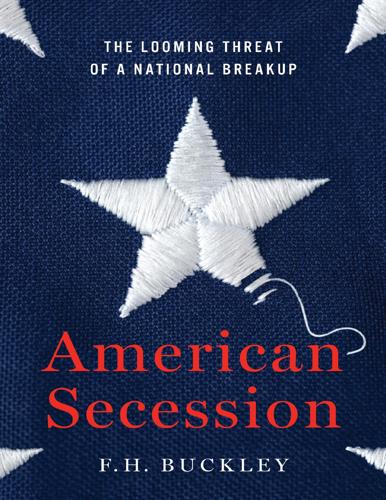
American Secession: The Looming Threat of a National Breakup
by
F. H. Buckley
Published 14 Jan 2020
Which state will begin the process, knowing how this would divert the government from all the immediately helpful things it can do, such as building roads and fixing potholes? Which state will pour oil on the passions of the day, and inflame them further? Which state will court the risk of invasion, of civil war? Which state will bell the cat? Which people are willing to sacrifice the glory of belonging to the most powerful country in the world? Small might be beautiful, but you’re more likely to believe this if you live in a small country. Finland will defend its borders but has no wish to extend them. It’s only larger countries that to seek to dominate their region, or the world, and having done so they find it very painful to retreat into smallness.
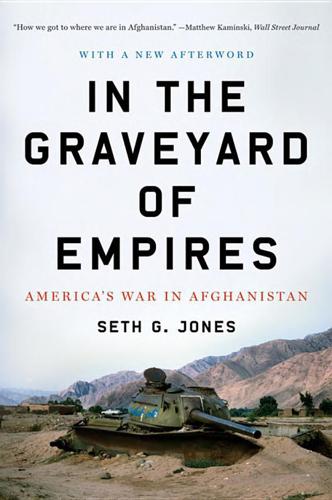
In the Graveyard of Empires: America's War in Afghanistan
by
Seth G. Jones
Published 12 Apr 2009
“Most people complained about policy,” explained Ronald Neumann, reflecting on his tenure as U.S. ambassador in Afghanistan over coffee one day in downtown Washington, DC. “But what we lacked was an ability to implement [it].”3 The challenge, he told me, was like Aesop’s fable “Belling the Cat.” A group of mice called together a committee to consider how to protect themselves from a cat that was harrassing them. The best solution, one mouse proposed, was to bell the cat, which was met with general applause. But this left one key question: Who would put the bell around the cat’s neck? “This was a question of implementation,” argued Neumann. “Since there were no volunteers, the policy was useless.”4 In a 2004 public-opinion poll conducted by the Asia Foundation, Afghans responded that two of the biggest problems in their local areas were the lack of jobs and the lack of electricity.5 Over the course of the next two years, jobs and electricity would remain the most significant infrastructure problems, in addition to access to water.6 U.S. government polls—most of which were not released publicly—showed similar results.
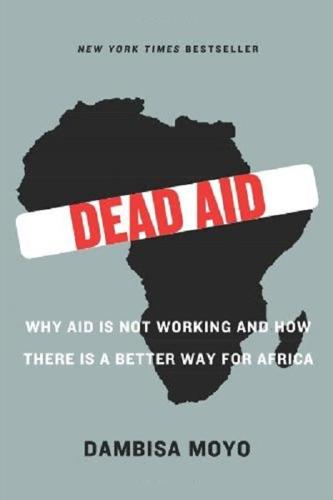
Dead Aid: Why Aid Is Not Working and How There Is a Better Way for Africa
by
Dambisa Moyo
Published 17 Mar 2009
The aid regime has been in place (in one form or another) for sixty years and demonstrably failed to generate economic growth and alleviate poverty. Given that in no other sphere (business, politics) has such a poor record been allowed to persist, why has the phone call not been made? Who will bell the cat? The Dead Aid proposal is dead easy to implement. What it needs, and what is lacking, is political will. Political incentives are stacked against making the call. Western donors have an aid industry to feed, farmers to placate (vulnerable when trade barriers are removed), liberal constituencies with ‘altruistic’ intentions to allay, and, facing their own economic challenges, very little time to worry about Africa’s demise.

We Are Bellingcat: Global Crime, Online Sleuths, and the Bold Future of News
by
Eliot Higgins
Published 2 Mar 2021
Problem being, we can’t tell when he’s coming. So here’s what we do,” the mouse says. “We hang a bell around the cat’s neck, and he’ll never catch us again.” The other mice burst into applause. They have a plan; they’ll be saved. Only one problem. Who’ll put a bell on the cat?’ That was it: our name and our mission. Belling the cats. 2 Becoming Bellingcat A team of detectives takes shape On 17 July 2014, Malaysian Airlines Flight MH17 took off from Amsterdam with 298 people aboard, many of them families setting out for Kuala Lumpur on summer holidays. After nearly three hours, the Boeing 777-200ER had traversed the width of Germany and Poland.

American Marxism
by
Mark R. Levin
Published 12 Jul 2021
Glasser (New York: Guilford Press, 1999), 123. 27 Theodore Glasser, “The Ethics of Election Coverage,” Stanford Magazine, October 2016, https://stanfordmag.org/contents/the-ethics-of-election-coverage (April 11, 2021). 28 Ibid. 29 Davis “Buzz” Merritt, Public Journalism and Public Life: Why Telling the News Is Not Enough (New York: Routledge, 1998), 96, 97. 30 Davis Merritt, “Stop Trump? But who will bell the cat?” Wichita Eagle, December 8, 2018, https://www.kansas.com/opinion/opn-columns-blogs/article48524730.html (April 11, 2021). 31 Ibid. 32 Merritt, Public Journalism and Public Life, 7. 33 Jay Rosen, What Are Journalists For? (New Haven, CT: Yale University Press, 1999), 20. 34 Ibid., 19–20. 35 Jay Rosen, “Donald Trump Is Crashing the System.

Policing the Open Road
by
Sarah A. Seo
Rexroth pointed to a burgeoning “What’s Wrong with the Police” literature and had even read the “well-meaning, mild-mannered” law professor’s Yale Law Journal essay. But Reich’s “code of conduct” for the police seemed both too mild and futile for Rexroth. “Eight points of ordinary legality and courtesy—but strictly belling the cat,” he figured. Rexroth was just as troubled as Reich about the overpolicing of American society. But even the self-proclaimed subversive shied from the radical idea of getting rid of the police. The “only thing to do,” Rexroth concluded, was “to adopt the protective behavior of the common criminal: ‘Keep your nose clean and don’t volunteer.’
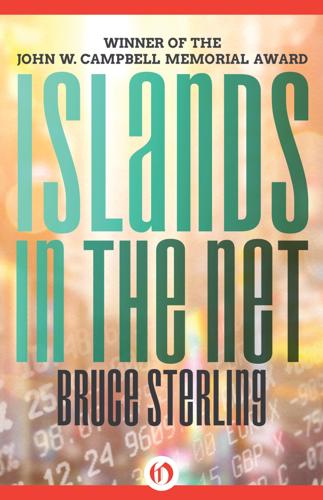
Islands in the Net
by
Bruce Sterling
Published 31 May 1988
Corporations can’t sign diplomatic treaties.” “Why not?” Yoshio said bluntly. “A treaty is only a contract. You’re talking like my grandmother. It’s our world now. Now there’s a tiger loose in it! A tiger we made—because we foolishly paid other people to be the claws and teeth of our corporations.” “Who bells the cat?” said Mika in English. She poured fresh sake into the little electric kettle. Yoshio laughed at them. “Such long faces. Why be so shocked? You were acting as Rizome diplomats already—subverting Grenada for your corporate politics. Don’t be so—what’s the world? Inscrutable! Be more modern!” He stretched out his kimono’d arms.

First Time Ever: A Memoir
by
Peggy Seeger
Published 2 Oct 2017
Us Singers’ Club residents found ourselves in a defensive position. Rumour, misunderstanding and malice had blown the Policy up out of all proportion. Gordon McCulloch and Enoch Kent, Singers’ residents, suggested that the principles of the Policy should be examined more closely. Let’s form a group of singers and discuss it. Good idea. Which mice are going to bell the cat? asked Aesop. Ewan and I began to recruit for a study group. You didn’t have to be a recognised singer to join. Bert Lloyd preferred to keep away and to take under his wing those who felt that studying folk singing as an art was an oxymoron. To each his own. Everyone liked Bert. Ewan wanted to teach and didn’t much care if he was liked or not.

Business Adventures: Twelve Classic Tales From the World of Wall Street
by
John Brooks
Published 6 Jul 2014
If it were left to judges to make such determinations, he said, “this could only lead to uncertainty. A decision in one case would not control another case with different facts. No insider would know whether he had waited long enough … If a waiting period is to be fixed, this could be most appropriately done by the Commission.” No one would bell the cat, and the complaints against Coates and Lamont were dismissed. THE S.E.C. appealed all the dismissals, and Clayton and Crawford, the only two defendants found to have violated the Securities Exchange Act, appealed the judgments against them. In its appeal brief the Commission painstakingly reviewed the evidence and suggested to the Circuit Court that Judge Bonsal had erred in his interpretation of it, while the defense brief for Clayton and Crawford concentrated on the possibly detrimental effects of the doctrine implied in the finding against them.

The Emperor of All Maladies: A Biography of Cancer
by
Siddhartha Mukherjee
Published 16 Nov 2010
In 1957, John Blatnik, a Minnesota chemistry teacher turned congressman, hauled up the FTC for neglecting to investigate the veracity of this claim. Federal agencies could not directly regulate tobacco, Blatnik acknowledged. But since the FTC’s role was to regulate tobacco advertisements, it could certainly investigate whether “filtered” cigarettes were truly as safe as advertised. It was a brave, innovative attempt to bell the cat, but as with so much of tobacco regulation, the actual hearings that ensued were like a semiotic circus. Clarence Little was asked to testify, and with typically luminous audacity, he argued that the question of testing the efficacy of filters was immaterial because, after all, there was nothing harmful to be filtered anyway.

Kissinger: A Biography
by
Walter Isaacson
Published 26 Sep 2005
Or he would rant about Henry’s personal peccadillos and the demands he made. In the process, he would always get into Henry’s psychiatric troubles.” (Kissinger has said that he never went to a psychiatrist.)28 Ehrlichman could never come up with a way to broach the subject of psychiatry to Kissinger, nor could anyone else. “No one would bell the cat and tell Henry he should see a psychiatrist,” Ehrlichman recalled. But years later, he decided to tackle the scene in a semifictional way. In a piece he wrote for an obscure British collection of spy tales, he recounted a meeting with Nixon and Haldeman, not even bothering to change the names: Nixon mused.